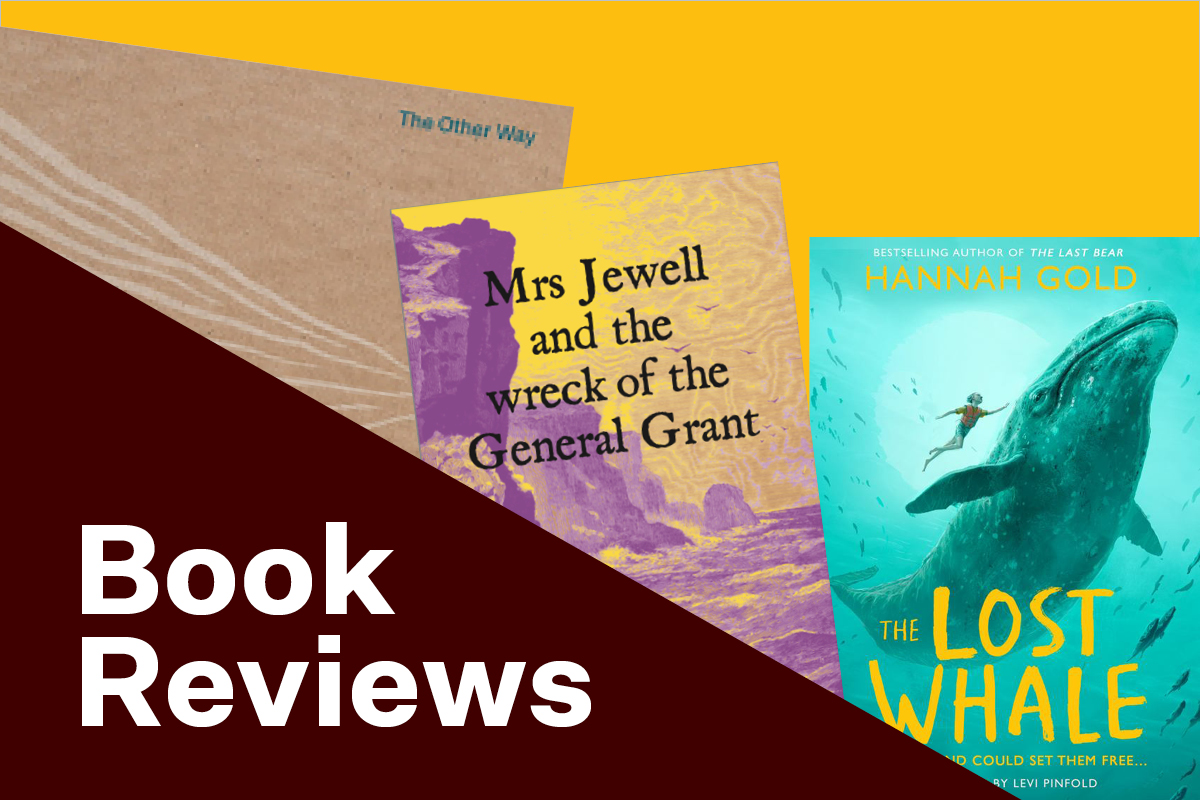If there’s ever been a moment in living history where pretty much all of us have had to halt, pivot and find another way, it’s right now. With climate change a clear and present danger and a colonial, western past forcing its consequences on the present, literature, as ever, reflects the zeitgeist. These books deal with human resilience and the landscapes that change us, as we change them.
This generation of children are familiar with the challenges and injustices faced by many in our world. I’m not a fan of scaring the daylights out of them with miserable, speculative stories of direness, but I like a story in which action is taken and something gets done. The Lost Whale by Hannah Gold is one of those stories, exquisitely illustrated throughout by Levi Pinfold.
Rio is eleven and is visiting his Californian grandmother, a woman he is meeting for only the second time. He misses his mother so much that his pain emanates from the page; there’s a beautifully poignant passage in which his little feet fit into the grooves she made in her old bedroom floorboards as she played her violin at the window, overlooking the ocean.
Rio finds his mother’s drawings of a grey whale, White Beak, and as the story progresses, the whale’s fate becomes entwined in Rio’s mind with that of his mother, who is in the dark depths of depression and struggling to return to him.
Unexpected friendship, the difficulties of family, and the pull of the ocean and her beleaguered beasts make a captivating tale for any reader of about eight years and up.
From the wonder of the sea, to the terror. Cristina Sanders pulls us under in her mesmeric new novel, Mrs Jewell and the Wreck of the General Grant.
Mrs Mary Jewell is twenty-two years old and recently married to Joseph who has struck gold in Australia and promises Mary an idyllic life back in Devon. They board ship to begin their journey, and although they are living apart whilst they work their passage, life is good.
Mary is a bright, capable woman. She cares for Mrs Oat’s children, brushing their shiny thick hair. She talks with Mrs Brown, the fussy wife of the ship’s second in command. The cosy, lovely minutiae of life on board is a clever set up for the moment the reader watches, through Mary, as the ship is crushed and sunk and every one of these women and girls drown. It’s a shockingly evocative passage of writing.
Those who live wash up on the sub-Antarctic Auckland Islands. After the relief of survival comes guilt, despair and for Mary, the need to navigate her vulnerability amongst the men. A scene in which she is so wretchedly ill that she crawls back to her spot in the shelter covered in the group’s collective filth, too weak to wash herself, vividly conjures the absolute misery of her struggle.
Cristina has merged fact with fiction after detailed research into the testimony of the survivors and what emerges is a hyper-real account of the wreck and the experience of the fourteen men and one woman who washed ashore. It’s completely riveting.
David Trubridge has created something exquisite, again. In his new book, The Other Way, he shares his photography and thoughts on his years of adventure.
The production of the book is a thing of beauty and the limited edition a technological wonder – a box, the joins of which are imperceptible, the design so smooth that the book appears as if by magic.
It’s the philosophy that’s the thing. David’s writing is gentle but firm, his attention to detail eliciting a sense of calm and wonder from the reader: a photograph of a feather embedded in Antarctic ice; a seal flipper, its bones and skin intact even though it could have been there for a thousand years. He makes us look, really look, like we would have as children. The images of ice and snow in this section are so clear that if you licked the page your tongue would stick to it.
David has a gentle but strong writing style – when he offers a comparison, it’s an unexpected one:
Eventually this ice might run out over the sea in a glacial tongue, like those cartoon characters who run off a cliff, legs still whirring, until they realise they are in thin air.
This is his ‘love letter to the land’ … from Antarctica to Japan, to Rapa Nui and in and out of Aotearoa and many places in between.
Three fascinating books, each with something to tell us about ourselves, exactly as a good book should.


I enjoyed the book reviews themselves – very thoughtfully written and then noticed they were by the fabulous Louise from Wardini’s – that made sense. Now to read the books ….